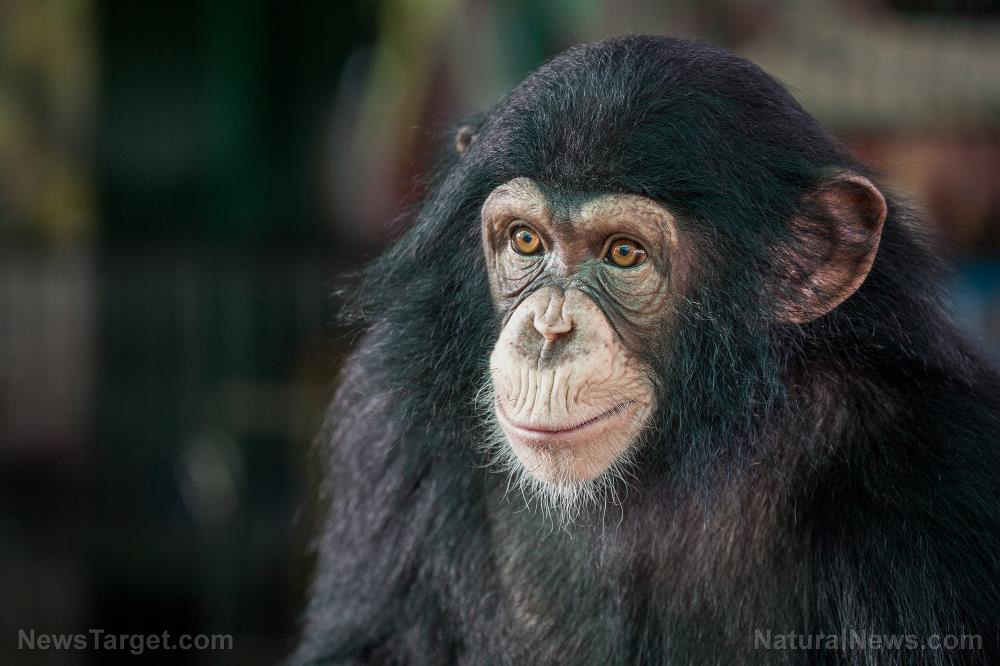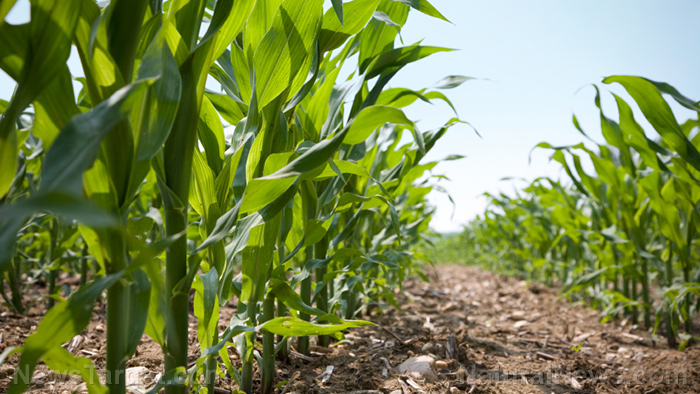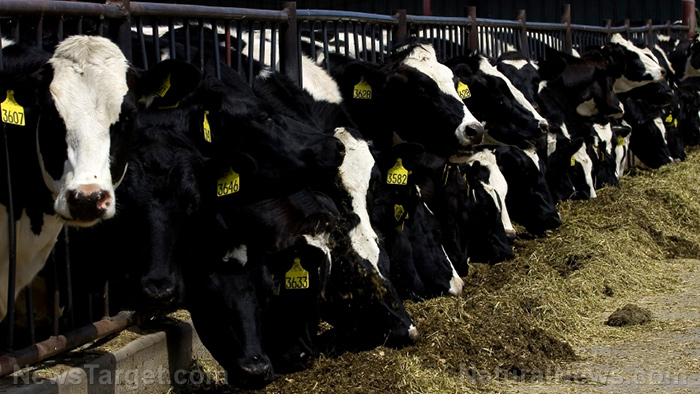Wild chimpanzees share boozy fermented fruit in first evidence of primate “social drinking”
04/22/2025 / By Cassie B.

- Wild chimpanzees in Guinea-Bissau have been observed deliberately sharing fermented fruit with alcohol, suggesting the evolutionary roots of human social drinking may date back millions of years.
- Researchers documented chimps passing around African breadfruit with up to 0.61% ABV, often choosing fermented options even when fresher fruit was available, indicating a possible preference.
- The behavior, recorded via hidden cameras, included peaceful sharing between chimps, potentially mirroring the social bonding humans experience through communal drinking.
- Fermented fruit offers nutritional benefits, and humans and apes share a genetic mutation for alcohol metabolism, hinting at ancestral exposure long before human-made alcohol existed.
- While the study’s sample size was small, the findings suggest alcohol’s social role isn’t unique to humans and may have deep evolutionary origins in primate behavior.
For the first time, scientists have documented wild chimpanzees deliberately sharing fermented fruit containing alcohol in a discovery that suggests the roots of human social drinking may stretch back millions of years.
The groundbreaking observations, published in Current Biology, reveal chimps in Guinea-Bissau’s Cantanhez National Park selecting and passing around naturally fermented African breadfruit with alcohol content up to 0.61% ABV. Researchers say this behavior could represent the earliest evolutionary stages of feasting and communal alcohol consumption, long before humans began brewing.
A primate cocktail hour
Using hidden cameras to observe chimpanzees unhabituated to humans, researchers recorded 10 instances of the apes sharing fermented Treculia africana fruits, often opting for the boozier options even when fresher fruit was available. In one clip, two adult females peacefully shared a highly fermented fruit remnant (0.61% ABV) while ignoring a less fermented alternative. Another showed an adult male allowing a companion to nibble from his alcoholic snack after a brief grooming session.
The fruit’s alcohol content, though far weaker than beer, was measurable in 86% of samples tested, averaging 0.26% in the ripest fruits. “Chimps don’t share food all the time, so this behavior with fermented fruit might be important,” said study co-author Dr. Kimberley Hockings of the University of Exeter. She suggests these interactions could mirror the social bonding humans experience through shared drinks, noting that alcohol triggers endorphin release in both species.
Why fermented fruit?
Beyond potential social benefits, fermentation offers practical advantages. The process softens tough fruit rinds while boosting vitamin content and breaking down plant toxins. Critically, humans and African apes share a genetic mutation from 10 million years ago that enhances alcohol metabolism, implying ancestral exposure to fermented foods long before human-made beverages existed.
“This behavior could be the early evolutionary stages of ‘feasting,’” Hockings said. “If so, it suggests the human tradition of feasting may have its origins deep in our evolutionary history.” The study aligns with prior findings that natural fermentation is widespread in forests, meaning similar behaviors likely occur in other ape populations.
Social sips vs. solitary binges
Unlike humans, the chimps showed no signs of aggression during sharing, and possessors relinquished fruit without conflict. Most sharing events (90%) involved alcoholic fruit, with seven occurring despite non-fermented alternatives nearby, hinting at deliberate preference. Researchers caution that the sample size (10 sharing events) limits definitive conclusions but call the patterns compelling.
The study’s most provocative implication is that alcohol’s social role isn’t uniquely human. Just as marketing shapes human enjoyment of drinks (as seen in beer and coffee experiments at MIT), innate preferences and social contexts may drive chimpanzees’ choices. “Our data support the idea that the use of alcohol by humans is not ‘recent’ but rather rooted in our deep evolutionary history,” the authors wrote.
Unanswered questions
Key mysteries remain, including whether chimps intentionally seek alcohol or simply prefer fermented fruit’s texture and taste. Longer studies tracking individual chimps, especially their metabolism and social bonds, are needed. As Hockings noted, determining if alcohol builds social capital in chimp communities could reshape our understanding of primate behavior.
Sources for this article include:
Submit a correction >>
Tagged Under:
Alcohol, animals, behavior, chimpanzees, discoveries, Ecology, environment, Evolution, fermentation, real investigations, research, social drinking, weird science
This article may contain statements that reflect the opinion of the author




















